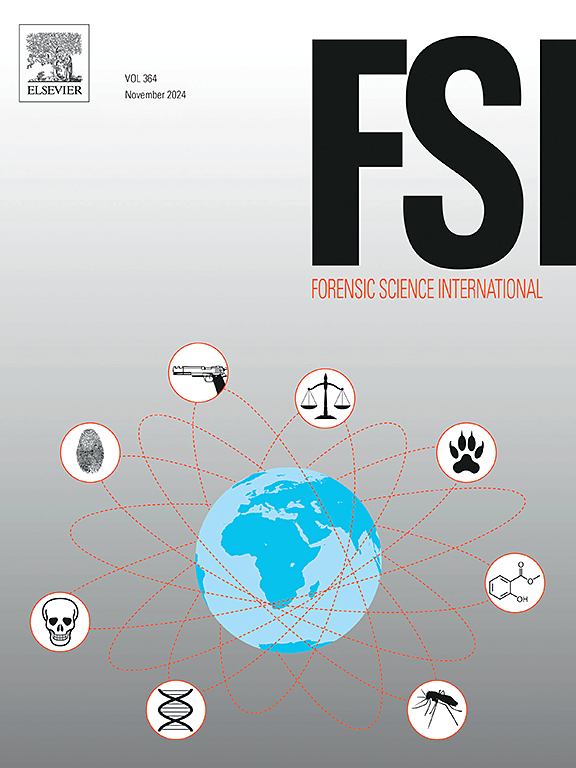Culmination of molecular genomic techniques in forensic crime investigation
IF 2.2
3区 医学
Q1 MEDICINE, LEGAL
引用次数: 0
Abstract
The advancements in the sectors of forensic science along with biological sciences has proved to be a cornerstone in serving justice to people across the world. Genes are the coding languages that the body uses to define the definite characteristics of a human being that differentiates that being amongst million others. Now, to distinguish and get hands on the criminals, unique techniques are developed and introduced in the market to be implemented in the real world in order to handout proper verdict by the judicial system. This paper deals with few of those molecular biology techniques that are implemented in forensics to unfold the reality of the cases. The paper discusses the basics, principles, pros, and cons along with the future aspects of the techniques with the reader and aims at clarifying the concept of analysis of the DNA. Techniques such as PCR, STR, mtDNA, NGS along with forensic DNA database CODIS are analysed in the paper which showcase the importance of the presence of a technique with a database for an optimal inference of the results.
分子基因组技术在法医犯罪调查中的应用。
事实证明,法医学和生物科学界的进步是为全世界人民伸张正义的基石。基因是人体用来确定人的明确特征的编码语言,它将人与其他人区分开来。现在,为了分辨和抓捕罪犯,市场上开发和引进了独特的技术,以便在现实世界中实施,由司法系统做出正确的判决。本文论述了在法医学中用于揭示案件真相的几种分子生物学技术。本文与读者讨论了这些技术的基本原理、原理、利弊和未来发展,旨在阐明 DNA 分析的概念。文中分析了 PCR、STR、mtDNA、NGS 等技术以及法医 DNA 数据库 CODIS,展示了一种技术和一个数据库对于最佳推断结果的重要性。
本文章由计算机程序翻译,如有差异,请以英文原文为准。
求助全文
约1分钟内获得全文
求助全文
来源期刊

Forensic science international
医学-医学:法
CiteScore
5.00
自引率
9.10%
发文量
285
审稿时长
49 days
期刊介绍:
Forensic Science International is the flagship journal in the prestigious Forensic Science International family, publishing the most innovative, cutting-edge, and influential contributions across the forensic sciences. Fields include: forensic pathology and histochemistry, chemistry, biochemistry and toxicology, biology, serology, odontology, psychiatry, anthropology, digital forensics, the physical sciences, firearms, and document examination, as well as investigations of value to public health in its broadest sense, and the important marginal area where science and medicine interact with the law.
The journal publishes:
Case Reports
Commentaries
Letters to the Editor
Original Research Papers (Regular Papers)
Rapid Communications
Review Articles
Technical Notes.
 求助内容:
求助内容: 应助结果提醒方式:
应助结果提醒方式:


